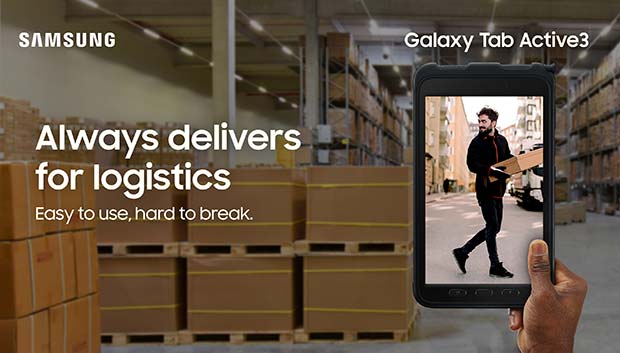As businesses adapt to customers’ growing expectations of faster service, many warehouse managers are looking to update their legacy warehouse mobile solutions for greater flexibility. They are shifting away from legacy Windows systems, or planning to, according to a recent survey.
 As their selection of Android-based devices grows, warehouse managers are more focused on updating their legacy technology, especially because warehouse conditions require rugged devices that can withstand harsh environments. According to the report, the risk of device damage is particularly high in warehouses, where non-rugged devices received a failure rate of 19.8% compared to 3.8% for rugged devices. On average, workers experienced 30 to 40 minutes of downtime due to device failure.
As their selection of Android-based devices grows, warehouse managers are more focused on updating their legacy technology, especially because warehouse conditions require rugged devices that can withstand harsh environments. According to the report, the risk of device damage is particularly high in warehouses, where non-rugged devices received a failure rate of 19.8% compared to 3.8% for rugged devices. On average, workers experienced 30 to 40 minutes of downtime due to device failure.
Many warehouse professionals are also motivated by life cycle concerns, as legacy systems are nearing the end of their effectiveness.
Over 100 professionals responsible for choosing mobile solutions for use in warehouses and distribution centres were polled.
About 35% noted that their current mobile solutions were nearing the end of their life. The study affirms that many Windows CE or Windows Mobile devices “have already reached their end of a meaningful life and are rapidly approaching their end of extended support.”
Defining criteria for updating legacy warehouse solutions
As existing platforms reach their end of service life, warehouse professionals seek replacements that deliver an enhanced user interface. Many current mobile solutions for warehouses are built around basic text functions and a keyboard-centric design. Almost 25% of respondents said the next iteration would need to have a more modern, visual interface. Nearly 35% said they want the ability to customise their mobile solution.
Security also ranks high as consideration for warehouse devices. Nearly half of respondents (49%) said security features are among their top concerns for warehouse mobile apps, while 55% say security will be a driving factor in their choice of OS.
Samsung’s Galaxy Tab Active3 is a rugged Android tablet that meets the key criteria that warehouse professionals look for in a replacement device. Tested against MIL-STD-810H standards for use in volatile environments, Galaxy Tab Active3 is built to withstand working in the warehouse; it’s dust- and water-resistant and protected against vibrations, drops and extreme temperatures. Samsung’s Knox platform provides defence-grade security, supported by biometric authentication features and device management tools for IT. Galaxy Tab Active3 also comes with a water-resistant S Pen — for intuitive writing and signature capture — as well as durable pogo connectors and a long-lasting, replaceable battery.
Android vs legacy OS
Windows used to be the primary OS in the field, but warehouse professionals today have multiple OS options to consider when considering upgrades.
Each platform choice offers distinct capabilities and end-users will need to determine which offers the best option to support their requirements. This requires a thorough re-evaluation. For a user base that has been traditionally risk-averse, addressing this represents a critical decision for organisations focused on minimising disruption.
In this context, researchers say Android as a warehouse OS option is on the rise, with the growing availability of Android-powered devices targeting Warehouse applications. In particular, with wearable solutions, Android adoption is in position to scale.
For more information, contact our rugged specialist jed.desouza@dataselect.com




Comments are closed.